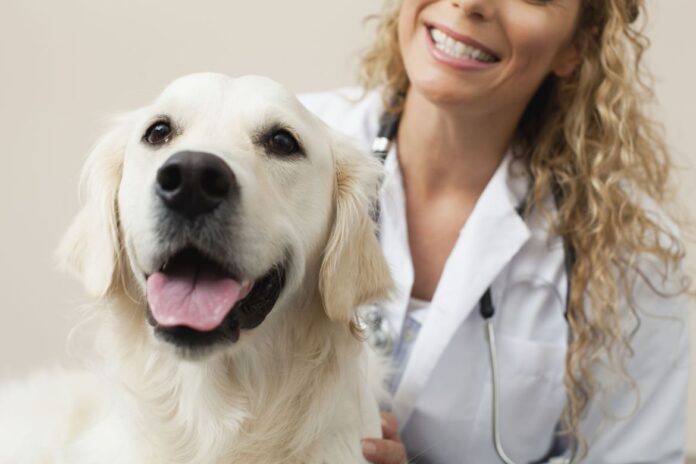
As a pet owner, it is of utmost importance that you’re always updated about your pet’s health. When you’re updated, you’ll find it easy catching problems before they get out of hand.
The only foolproof way of keeping tabs on your pet’s health or knowing its baseline is maintaining regular pet visits. During the visits, the vet will do various medical checkups. They may also recommend or offer vaccines medicines, and dietary tips based on the dog’s physical or health status.
Usually, frequency in visiting the vet will vary depending on age or the pet’s environment. The visits may also be frequent if it has an underlying ill-health condition.
Puppies
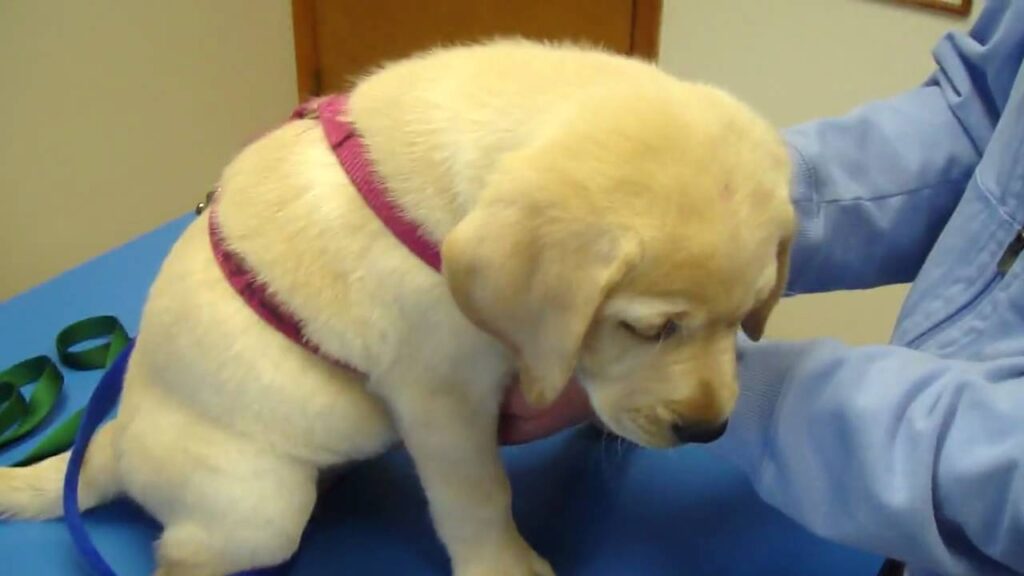
If it is a puppy, it is recommendable that you visit your vet every 21-28 days for vaccines. This trend should continue until the pet is four months of age.
During these visits to the facility, the vet will give it distemper-parvo shots and rabies shots. They may also recommend or provide vaccines against other diseases like Lyme disease, kennel cough, and influenza.
The puppy will also get tested to check that it’s healthy, and there no warning signs for preventable diseases. You’ll need to revisit the veterinary officer after the puppy has reached six months of age for neutering or spaying.
Adult Dogs (Age 1-7 and 7-10 years old)
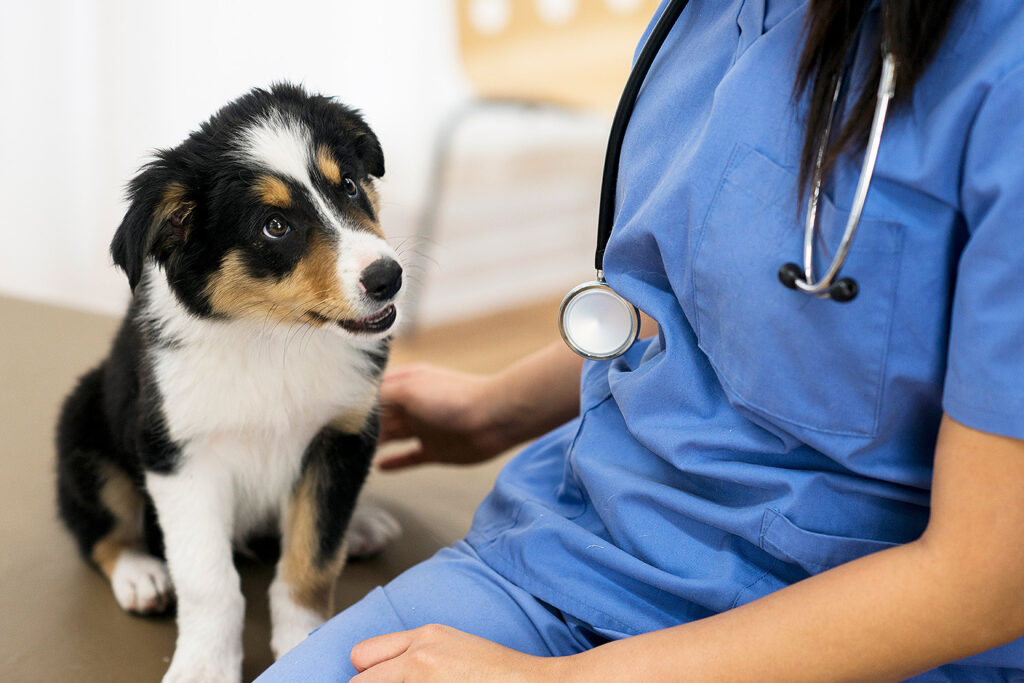
For an adult dog, the vet will recommend annual visits. When you take it for the yearly checkups, it will be examined from head to tail to catch any physical conditions or signs of diseases and infections.
The veterinary officer will also draw the dog’s blood sample and check it for worms. The blood tests are not mandatory, but they’re essential, especially if the vet notices any strange conditions or strange results when physically examining the dog.
The dog will most certainly get vaccinated against rabies and distemper-parvo. After the first year, it will need these shots every three years though this might change. It will also help if you carry the pet’s stool sample so the vet can examine it for internal parasites.
Senior Dogs
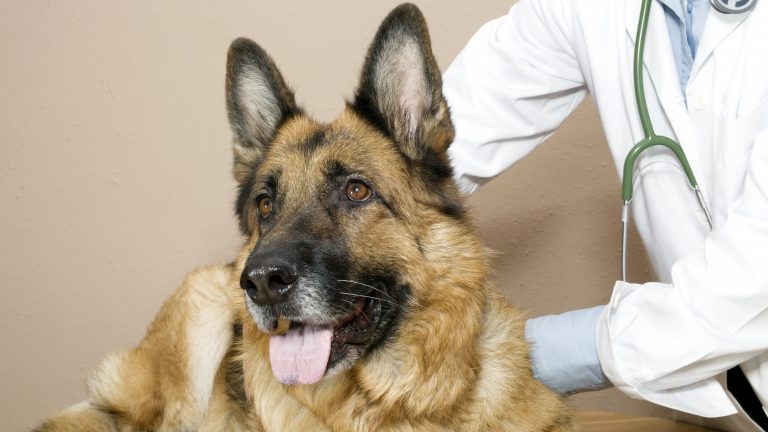
These are usually dogs that are 7-10 years old or even more. Usually, adult pets will require bi-annual visits to veterinary centers.
During these visits, your vet will offer or give vaccinations when appropriate. The vet will also do intensive physical checkups and do various tests to catch any hidden problems.
For these visits, you should also take the pet’s stool to the vet to test them. Depending on the sample you provide, the vet will know the pet’s internal organs’ health, such as the level of thyroid hormones, heart rate, and liver health, among others.
If you noted any strange behaviors with the pet before, ensure that you let the vet know the changes.
The Environment Aspect
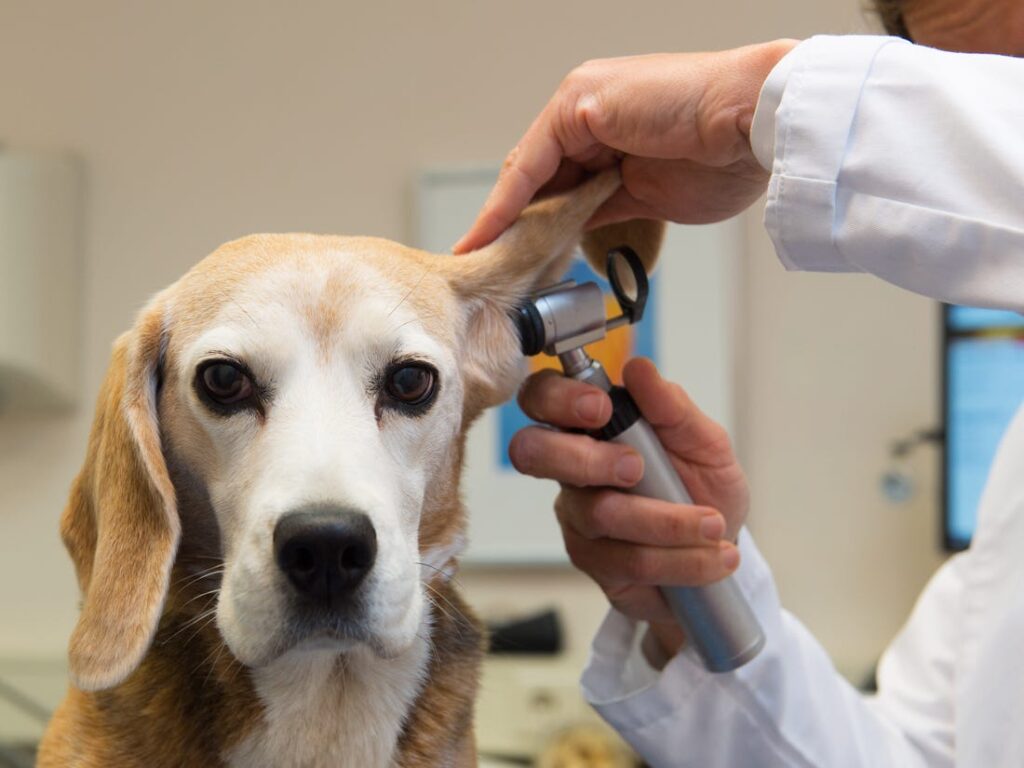
For the environment, the pet will get varied medications irrespective of its age. For instance, the vet may give vaccines against diseases that are caused by fleas, ticks, and heartworms, among others.
Rabies shots may vary depending on your state/country.
What is the Cost for Vet Visits?
The American Kennel Club (AKC) estimates that regular vet visits would cost you approximately US$700-US$1500 each year for adult dogs. This is if you factor in aspects like dental care, lab tests, vaccines, and others.
Since regular vet checkups important, knowing the costs beforehand will make it easy for you to make informed decisions before visiting the facility. These costs will also vary depending on your location and the size or age of the dog.
Here is a breakdown of the typical costs you should expect when you take your dog for check-ups, according to the American Kennel Club (AKC).
- Vaccinations: US$268.
- Fecal Exams: US$60.
- Heartworm examinations and necessary preventions: US$127.
- Dental checkup, care, and cleaning if required: US$125.
- Neutering or Spaying: US$175.
- Yearly Physical exams: US$58.
- Prevention against ticks, fleas and related parasites: US$190
On average, therefore, you’d need just US$1,003 for yearly pet visits.
How to Find the Best Vet for My Dog
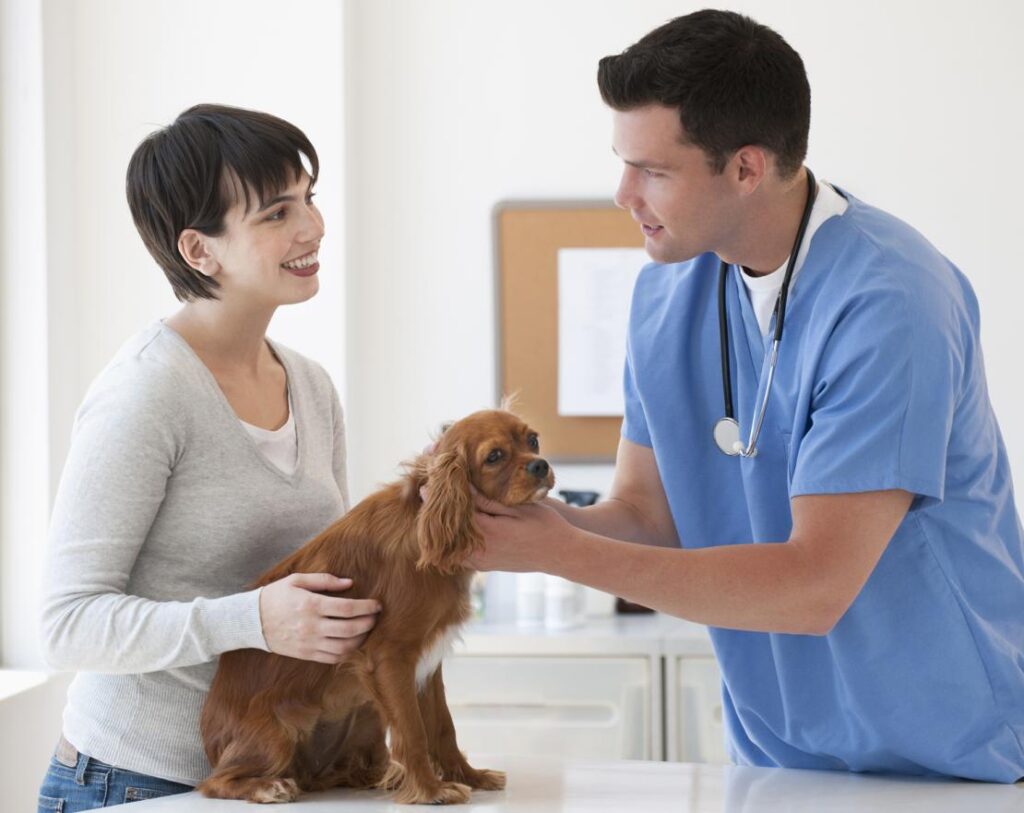
It is also worth noting that the vet you choose may determine your dog’s odds of resisting infections and staying healthy for extended periods. If you’re looking to partner with the right vet for your pet, here are a few factors that you may need to consider.
- Accreditation
You can only be sure that your dog will get dedicated care if a reliable third party body accredits the facility. If you’re in the US, the facility should be certified by the American Animal Hospital Association (AAHA).
- Hygiene
Be sure to firstly, take a tour of the facility to review their hygiene standards. The staff should also be organized and well trained. A reputed vet center will always allow you to tour the facility, so you’re satisfied with the service before letting your pet in.
- Insurance payments
If your pet is insured, check to see if the facility will be willing to work with your insurance plan.
- Reviews and years of service
You may also need to check past client reviews of that facility and their years of service. You can always find these reviews on independent review websites like Google, Yelp, or even their website and social media pages.
You Can Slash Down the Cost of Vet Visits and Pet Medications
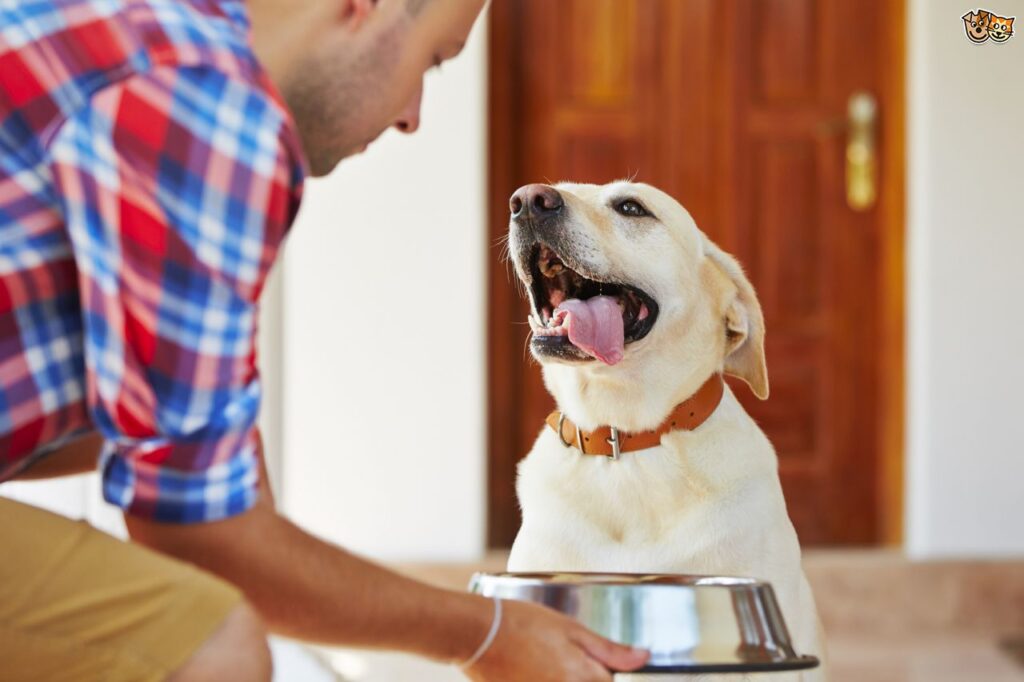
Apart from the vaccines, ensuring that the dog gets enough exercise and is fed on a highly nutritious diet can significantly help you slash these costs. Therefore, you will have to create a healthy diet for your dog and have it stick to it.
You will also need to ensure that the dog is only fed high quality dog food or treats with no dangerous additives or preservatives. Most probably, the best way of achieving this is making homemade dog food and treats.
However, this may not be very convenient if you don’t know how to mix the ingredients well, and this is where the all-natural dog foods and treats from reputed brands like TailBangers also come in. Most pet owners like these pet foods and treats because they’re packed with the necessary nutrients and free of dangerous preservatives and additives that can be toxic to your dogs.
Drop us a line today, so we can share more tips with you on the best foods and treats for your dog and recommend a few treats that will be healthy for it.














